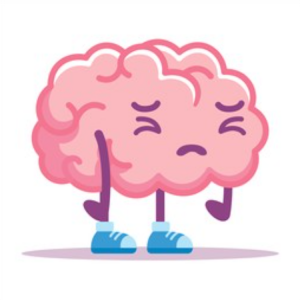Helping Someone with Depression
Nowadays, people talk more about mental health, but there is still a stigma attached to mental health. This stigma can stand in the way of someone seeking treatment. The support from family and friends plays an important role in helping someone with depression. While you can’t force anyone to seek treatment if they’re not ready, you can be open to learning about depression and, ultimately, make a difference in someone’s life.
Understanding Depression: How to Recognize Symptoms of Depression
With the ongoing COVID-19 pandemic, economic uncertainty, and increasing pressure, mental health issues are on the rise. Approximately 9.5% of American adults will suffer from a depressive disorder each year. Women are almost twice as likely to suffer from major depression than men.
Depression is a serious condition that affects millions of people worldwide. If a loved one is depressed, you may be experiencing challenging emotions like guilt, frustration, fear, and anger. These emotions are entirely normal. It’s not easy to help someone with depression. But your support could be crucial to their recovery.
Also known as major depressive disorder, depression is a mood disorder that involves a collection of symptoms. Feeling sad or depressed is natural at times of loss or intense life challenges. But when extreme sadness lasts for days or weeks, it could be a sign of something more. Symptoms of depression include:
-
Feel worthless or guilty
-
Lack of energy
-
Depressed mood most of the day
-
Can’t sleep or sleep too much
-
Think about death or suicide
-
Lost or gained weight
-
Lost interest in something you enjoy
-
Trouble concentrating
The condition can have several underlying causes such as genetics, environmental, psychological, and biochemical factors.
Read more about the causes of depression.
What to Say to Someone Who is Depressed
Nothing quite prepares you for living with someone who is depressed. Whether it’s a friend, loved one, or family member, it’s hard. It’s important to remember that it’s no one’s fault. Regardless of background, age, gender, or personality, depression can affect anyone.
The symptoms of depression are not a personal attack on you and ignoring it won’t make the problem disappear. You’re not to blame, and as much as you want to fix another person, ultimately, recovery is in the hands of the person with depression.
Overall, being compassionate and actively listening is better than giving advice. At times, you may not even need to say anything. Having someone who will listen can make a person feel less alone and isolated. When speaking to someone who is depressed, here are some tips to help you navigate the conversation:
-
Avoid being critical or judgemental
-
Express that you care and are there to listen
-
Try to be patient
-
Collect information on the services available to help
-
Gently encourage them to seek professional help
-
Don’t forget to take care of yourself
How to Help Someone with Depression
Your friend or loved one may not even know they have depression or are unaware of the help available. They may not know how to reach out for support or what to do. Even searching for a therapist and making an appointment can be an overwhelming and daunting task. By understanding the treatment options available, you can gently encourage someone to seek professional help or call a depression hotline number for advice.
If someone is very depressed, encourage them to speak to their doctor. If they seem open to talking to a therapist, offer to research therapists and make an appointment for them. There are various support groups, counseling sessions, and therapists that deal with depression. Often, treatment for depression has multiple facets such as:
-
Speaking to a doctor
-
Talking to a psychologist or therapist
-
Self-care (eating, exercising, and sleeping well)
Dealing with a loved one with depression can feel frustrating and overwhelming. It’s easy to forget about yourself when you focus on someone with depression. But it’s essential that you take care of your own needs while offering support. By staying alert for signs of worsening depression and educating yourself, you can support your loved or friend in their recovery.
Join Our Community
Archives
- January 2023
- December 2022
- September 2022
- August 2022
- June 2022
- May 2022
- April 2022
- March 2022
- February 2022
- January 2022
- December 2021
- November 2021
- October 2021
- September 2021
- August 2021
- July 2021
- June 2021
- May 2021
- March 2021
- September 2020
- August 2020
- July 2020
- June 2020
- May 2020
- April 2020
- March 2020
- February 2020
Subscribe

Sign up to receive FREE toolkit
From Dr. Hyman, #1 NY Times & Amazon Author
We never spam or sell your e-mail






Follow Our Every Move